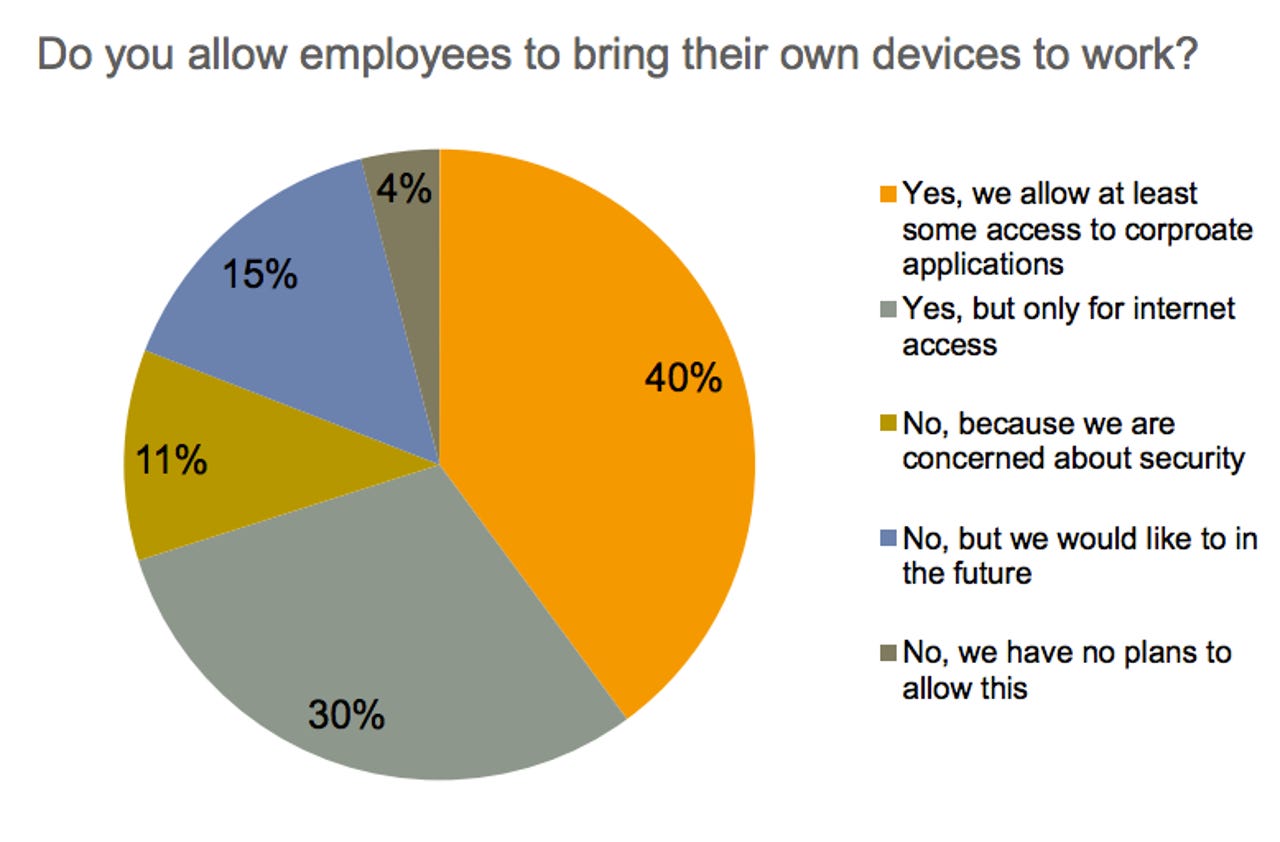BYOD inches along in Europe, Middle East, Africa


Enterprises in Europe, the Middle East and Africa are increasingly -- though incrementally, and perhaps reluctantly -- allowing employees to use their personal devices to access some kind of business systems, according to a new survey.
A new Aruba Networks study polled 773 IT and networking pros in the EMEA region to learn that while they are taking steps to embrace BYOD, there are significant barriers -- from security to bandwidth issues -- that have prevented them from diving in deeper.
Sixty-nine percent of organizations polled allow some form of BYOD. This ranges from Internet connectivity to corporate application access. On the other hand, just twenty-two percent of them allow more than a quarter of their workforce to actually bring their own devices -- and one-third ban personal devices outright.
The biggest pain point? Ensuring a secure connection, according to 70 percent of respondents. Another 45 percent expressed concern about enforcing access rights based on user, device and application type; thirty-five percent said that simply providing enough wireless coverage was a hurdle.
The survey also exposed device preferences. To little surprise, Apple dominated both for smartphones and tablets, with 88 percent and 86 percent of respondents choosing the company. Samsung came in second on both with 67 percent and 51 percent. (If anything, this shows how much room there is for competition.)
"While many organizations are taking considerable strides, there is still some way to go," Aruba senior marketing director Chris Kozup said. "Working habits are changing, and more companies must assess the business case."
Related on ZDNet: